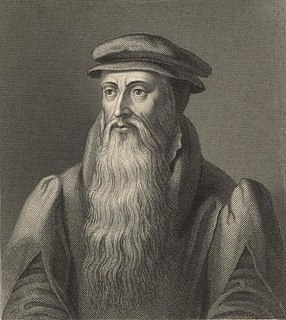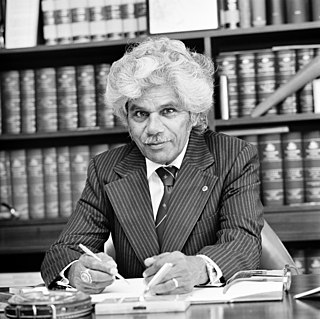A Quote by Jean Guitton
When I read the documents relative to the Modernism, as it was defined by Saint Pius X, and when I compare them to the documents of the II Vatican Council, I cannot help being bewildered. For what was condemned as heresy in 1906 was proclaimed as what is and should be from now on the doctrine and method of the Church. In other words, the modernists of 1906 were, somewhat, precursors to me. My masters were part of them. My parents taught me Modernism. How could Saint Pius X reject those that now seem to be my precursors?
Related Quotes
The recent inspection find in the private home of a scientist of a box of some 3,000 pages of documents, much of it relating to the laser enrichment of uranium support a concern that has long existed that documents might be distributed to the homes of private individuals. On our side, we cannot help but think that the case might not be isolated and that such placements of documents is deliberate to make discovery difficult and to seek to shield documents by placing them in private homes.
Modernism was a big thing for me, coming from a father who was very interested in art, music and culture - and almost always Italian art, music and culture. One good thing about Italians is that culture is part of everyday life. But Modernism is a movement of the past. The idea of a Modernist building as a sculpture set on a pedestal of grass is a part of Modernism that I'm not so crazy about.
The moment in the account of Adam and Eve in the book of Genesis is when they realize they're naked and try and cover themselves with fig leaves. That seemed to me a perfect allegory of what happened in the 20th century with regard to literary modernism. Literary modernism grew out of a sense that, “Oh my god! I'm telling a story! Oh, that can't be the case, because I'm a clever person. I'm a literary person! What am I going to do to distinguish myself?...a lot of modernism does seem to come out of a fear of being thought an ordinary storyteller.
In the critic's vocabulary, the word "precursor" is indispensable, but it should be cleansed of all connotations of polemic or rivalry. The fact is that every writer creates his own precursors. His work modifies our conception of the past, as it will modify the future." -- Essay: "Kafka and his Precursors
Grandad taught me that the alien signs and symbols of algebraic equations were not just marks on paper. They were not flat. They were three-dimensional, and you could approach them from different directions, look at them from different ways, stand them on their heads. You could take them apart and put them back together in a variety of shapes, like Legos. I stopped being scared of them.
It was a struggle for a long time. My parents were rightly cautious, in the sense that they were like, "We want you to do what you want to do. We just also want you to not have to sleep on an air mattress for the rest of your life." What was beneficial for me was that I did everything I could to let them be a part of my life and show them how seriously I took comedy. This is my way of helping people and contributing something to society, and I'm doing everything I can to be as funny as possible without embarrassing them. They're proud now.
I have great love for Saint Joseph, because he is a man of silence and strength. On my table I have an image of Saint Joseph sleeping. Even when he is asleep, he is taking care of the Church! Yes! We know that he can do that. So when I have a problem, a difficulty, I write a little note and I put it underneath Saint Joseph, so that he can dream about it! In other words I tell him: pray for this problem!
As they were leading me up, I looked up and around the galleries and I could feel the whole Aboriginal race, of those who had gone before, were all up there, and I could visualise, I could hear voices and amongst those voices was the voice of my grandfather saying, 'It's alright now boy, you are finally in the council with the Australian Elders. Everything is now going to be alright.'
Saint Augustine cries, Lord I cannot love you, but come in and love yourself in me. According to Saint Paul, we must put off our own natural form and put on the form of God, and Saint Augustine tells us to discard our own mode of nature; then the divine nature will flow in and be revealed. Saint Augustine says, Those who seek and find, find not. He who seeks and finds not, he alone finds. Saint Paul says, What I was, was not I, it was God in me.
Churchgoers all across the nation say the Holy Spirit has entered them. They claim that God has given them a supernatural ability to follow Christ, put their sin to death, and serve the church. Christians talk about being born again say that they they were dead but now have come to life. We have become hardened to those words, but they are powerful words that have significant meaning. Yet when those outside the church see no difference in our lives, they begin to question our integrity, out sanity, or even worse, our God. And can you blame them?









































